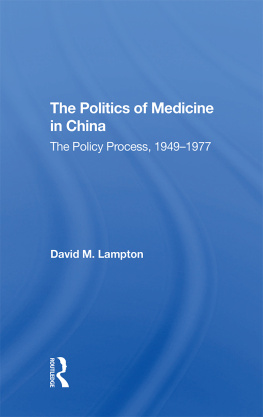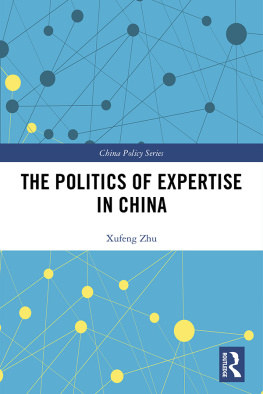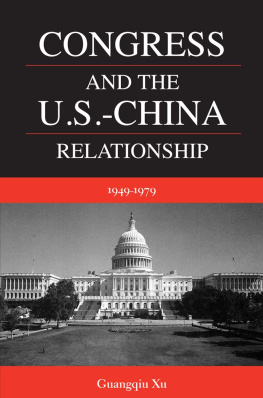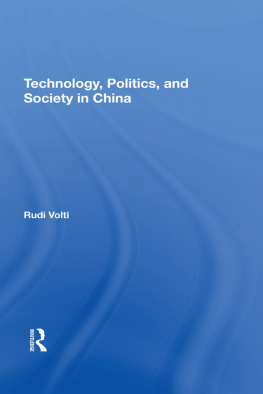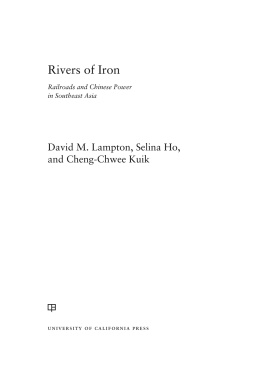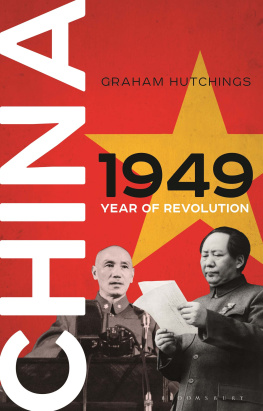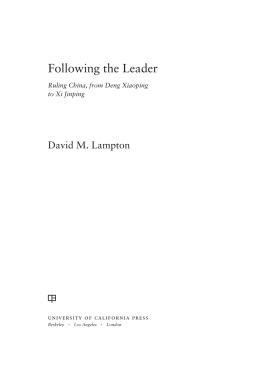The Politics of Medicine in China
Other Titles in This Series
Women in Changing Japan, edited by Joyce Lebra, Joy Paulson, and Elizabeth Powers
Cadres, Commanders, and Commissars: The Training of the Chinese Communist Leadership, 1920-45, Jane L. Price
Mineral Resources and Basic Industries in the People's Republic of China, K. P. Wang
The Problems and Prospects of Amerioan-East Asian Relations, edited by John Chay
The Chinese Military System: An Organizational Study of the People's Liberation Army, Harvey Nelsen
The Medieval Chinese Oligarchy, David G. Johnson
Chinese Foreign Policy After the Cultural Revolution, Robert G. Sutter
Westview Special Studies on China and East Asia
The Politics of Medicine in China: The Policy Process, 1949-1977
David M. Lampton
David Lampton describes the preliberation health system in China and how preliberation experiences and postliberation problems have shaped health policy in the PRC. Drawing on a vast range of primary materials including interviews, local Chinese-language newspapers, and travel reports, he explains the reasons for health policy change in the PRC and draws more general conclusions about Chinese politics and change.
This study concentrates on medical education, research, financing, health care delivery, traditional medicine, professional life, and mass campaigns. Dr. Lampton summarizes his findings in five areas: (1) the Chinese have made substantial progress in health work, which reflects the unique blending of prerevolution legacies and postliberation aspirations and programs. (2) At all times, health policy has reflected economic constraints, organizational and elite conflict, and the response of the Chinese populace. (3) Rather than one unified policy process in China during the last twenty-eight years, the very structure of the policy process has changed in response to economic and policy difficulties. (4) There has been a tendency for policy-making authority to gravitate toward the medical bureaucracy, despite repeated attempts to diminish that role. (5) Finally, there has been a continual effort to expand the number of social sectors with a direct impact on the health bureaucracy. Whether or not peasant interests have, in fact, been institutionalized is one of the major questions to be answered in the post-Mao era.
David Lampton received his doctorate in political science from Stanford University and is now assistant professor of political science at the Ohio State University, where he is affiliated with the Mershon Center.
The Politics of Medicine in China
The Policy Process, 1949-1977
David M. Lampton
First published 1977 by Westview Press
Published 2019 by Routledge
52 Vanderbilt Avenue, New York, NY 10017
2 Park Square, Milton Park, Abingdon, Oxon OX14 4RN
Routledge is an imprint of the Taylor & Francis Group, an informa business
Copyright 1977 Taylor & Francis
All rights reserved. No part of this book may be reprinted or reproduced or utilised in any form or by any electronic, mechanical, or other means, now known or hereafter invented, including photocopying and recording, or in any information storage or retrieval system, without permission in writing from the publishers.
Notice:
Product or corporate names may be trademarks or registered trademarks, and are used only for identification and explanation without intent to infringe.
Library of Congress Cataloging in Publication Data
Lampton, David M.
The politics of medicine in China.
(Westview special studies on China and East
Asia)
Bibliography: p.
1. Medical policy--China. 2. China--Politics
and government--1949- I. Title.
RA395.C53L36 362.1'0951 77-8291
ISBN 13: 978-0-367-28372-8 (hbk)
To Susan
In the daytime few are in the fields.
At night ghosts sing under the moon.
When shall we see the end of our suffering?
And when shall happiness touch us?
Traditional peasant lament
Contents
- PART 1
PRE-REVOLUTIONARY LEGACIES AND POST-REVOLUTIONARY CHANGE - PART 2
LEADERSHIP AND ADMINISTRATION DIVIDED: THE GREAT LEAP FORWARD - PART 3
THE COLLAPSE OF THE GREAT LEAP FORWARD: TOWARD THE FRAGMENTATION OF LEADERSHIP - PART 4
THE CULTURAL REVOLUTION: COALITION POLITICS
Ever since beginning this enterprise, I have been the recipient of large doses of encouragement from my wife Susan, to whom this book is dedicated, and my two families. In conducting my research and thinking about health politics in China, I have mined the intellectual resources of scores of individuals, only a few of whom I can presently thank. John Wilson Lewis has been a teacher proficient in both the arts of listening and criticizing; for both his skills I am thankful. Michel Oksenberg has contributed enormously to my understanding of the Chinese policy process and has repeatedly made resources available which improved my work and permitted me to expeditiously get on with the job. I have been Gabriel Almond's student since my undergraduate years, and if this study has succeeded in achieving a comparative perspective, it is in no small part due to his influence. It is often difficult for an "area specialist" to tap the accumulated expertise of another profession, but Dr. Paul Basch of the Stanford School of Medicine made my task easier by introducing me to the international health literature. Finally, I would like to thank Thomas P. Bernstein, Stephen Goldstein, Harry Harding, Peter N. Lee, Victor Li, Robert North, and Seiichiro Takagi for commenting on this research at one point or another.
In addition to those individuals mentioned above, I would like to thank Ezra Vogel for making his extensive interview protocols available. Similarly, Susan B. Rifkin was of great help and encouragement to me in Hong Kong. She read an earlier draft of the entire manuscript and made available her interviews with traditional Chinese physicians.
Those I interviewed in Hong Kong were my mentors as well. I will not mention their names only because I know that most would prefer to remain anonymous. I hope to retain their friendship throughout the years. Of special importance are two wonderful women in Hong Kong: One showed my wife and me great affection and helped my work immeasurably. The other's veritable thirst for traditional medicines brought the entire rainbow of Chinese drugs right into our living room.
While in Hong Kong in 1972 and 1973, I profited from the services provided by the Universities Service Centre, its attentive and efficient staff, its able director, B. Michael Frolic, and its assistant director, John Dolfin. Upon my return to the United States, I was fortunate enough to be able to spend the 1973-1974 academic year at the University of Michigan's Center for Chinese Studies. Both Albert Feuerwerker and Rhoads Murphey made that a most productive period for me. Finally, my colleagues and the staff at The Ohio State University have been most supportive. I especially appreciate Ms. Connie Gaib's typing and the editorial assistance of Mervyn W. Adams Seldon.
The financial support of several institutions has made the research and production of this volume possible. The United States Office of Education awarded me a Fulbright-Hays Grant for the 1972-1973 period. The Mabelle McLeod Lewis Memorial Fund provided me with essential write-up money. Finally, the Josiah Macy, Jr. Foundation made my stay at Michigan possible. To all these organizations I say thanks. With all this help, the least I can do is assume full responsibility for the results.


